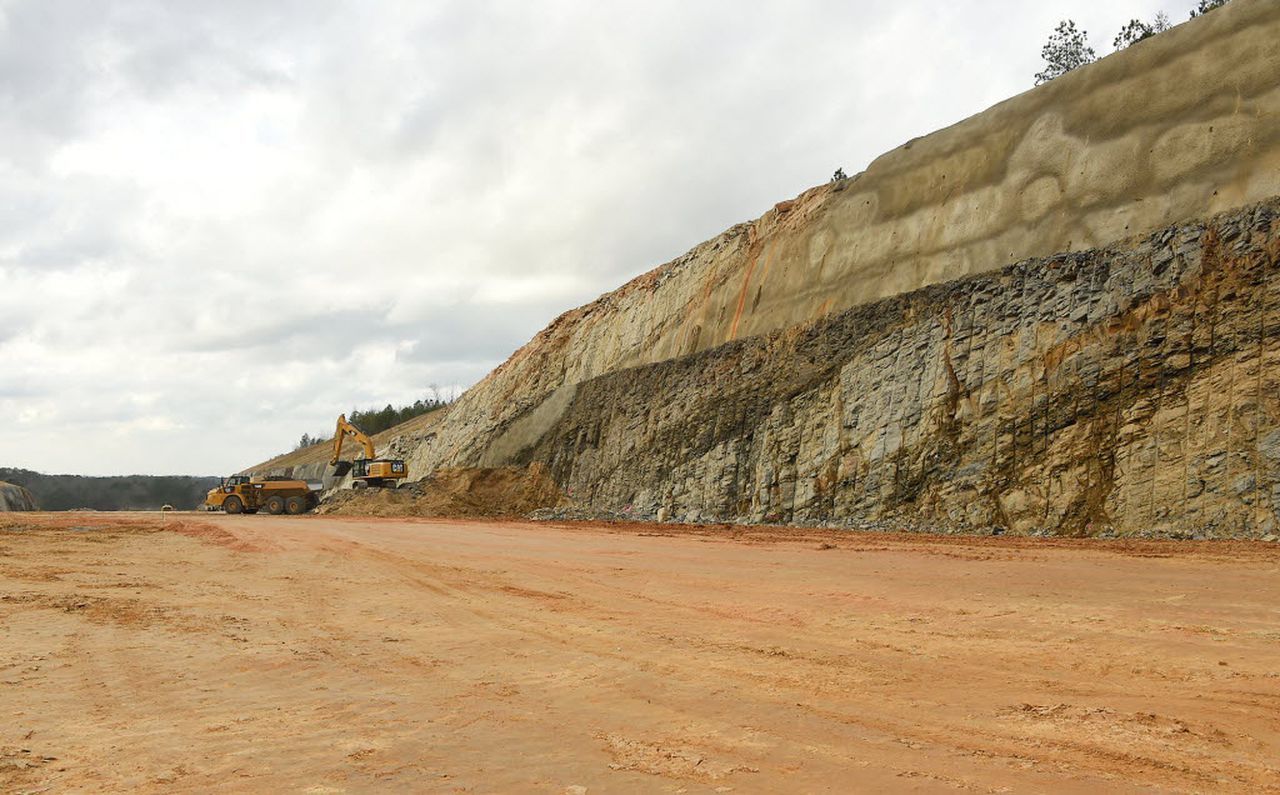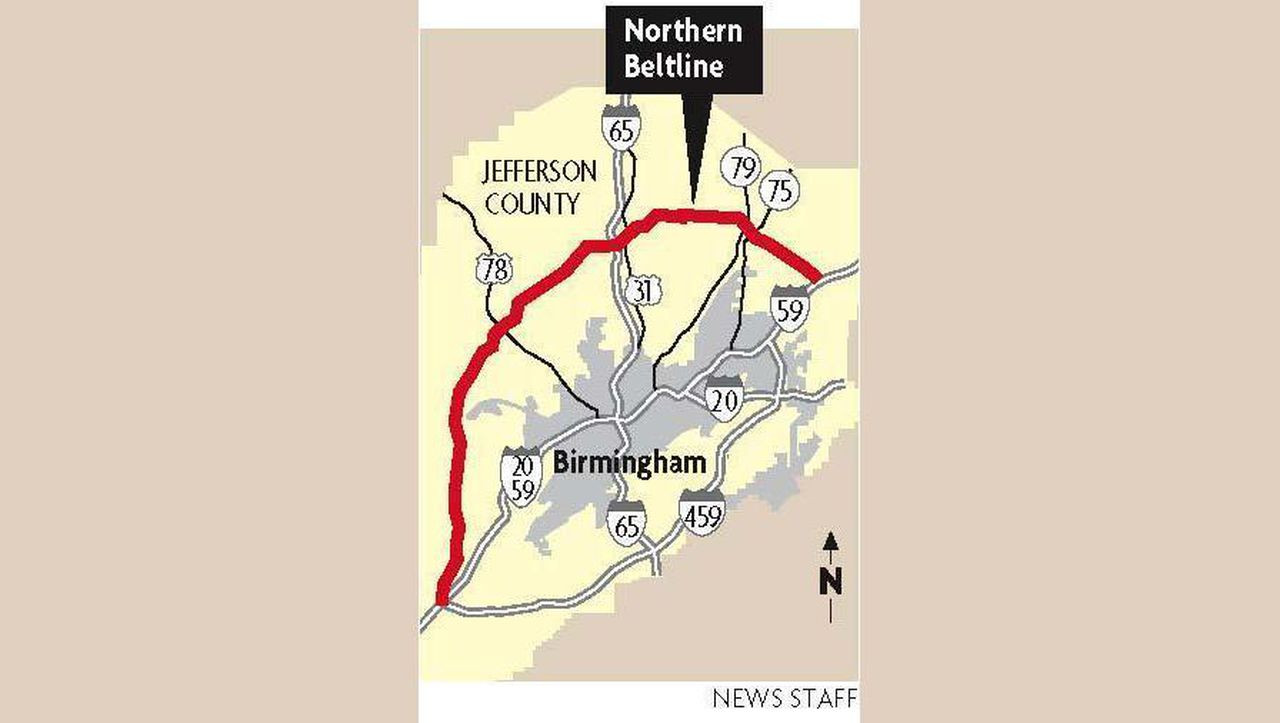$5 billion bypass north of Birmingham unnecessary, destructive, groups say
Alabama environmental groups are urging their members to speak out against plans to sink more money into a $5 billion project to build an interstate highway bypass north of Birmingham.
The Alabama Department of Transportation announced plans to spend an additional $460 million over the next four years working to build a 52-mile interstate bypass around the northern side of Birmingham.
Proponents say the Northern Beltline project would spur economic development in the communities north of Birmingham. But with cost estimates more than $5 billion and the completion timeline stretching decades, critics say the project is expensive, unnecessary and environmentally destructive.
“The proposed highway will permanently degrade our community, including our drinking water; and it is the most expensive project in the history of Alabama,” Southern Environmental Law Center Senior Attorney Sarah Stokes said in a letter to ALDOT opposing the plan.
“Taxpayer funding for this highway should instead be spent on other needed projects in the state that can be completed in less than 60 years (the estimated completion time for the Beltline).”
An outline of the proposed Northern Beltline from 2011.The Birmingham News
The letter was sent by the Southern Environmental Law Center on behalf of Black Warrior Riverkeeper, which is also urging its members to oppose the project.
Comments on the current Statewide Transportation Improvement Program, which includes $460 million toward restarting the beltline, can be sent to ALDOT here.
Of particular concern to the environmental groups are impacts to the Black Warrior and Cahaba Rivers, which provide the Birmingham area with its drinking water. The groups say the proposed route of the highway would cross tributaries of those rivers 90 times over 52 miles.
“Not only is the Northern Beltline a bottomless money pit, it’s a reckless threat to our water resources,” Black Warrior Riverkeeper Nelson Brooke said in a news release.
Stokes said the route chosen by ALDOT was “the most environmentally destructive” option of seven routes considered.

Construction has long been stopped after phase 1 of the Northern Beltline between Hwy. 75 and Hwy. 79 in northeast Jefferson County.
The idea of a Northern Beltline for Birmingham has been around since the 1960s, but so far, no actual roads have been completed.
ALDOT has drained and graded about 1.3 miles of the proposed 52-mile highway that would connect Interstate 59 in northeast Jefferson County with Interstate 459 in Bessemer, beginning work in 2014. Construction stopped in 2016 as federal funding ran out.
But now, with new federal money, the project is moving forward again.
Alabama Gov. Kay Ivey announced earlier this year that construction on the project would continue with $489 million in federal funds. The project could receive as much as $1.5 billion in federal transportation funds through 2045.
The hope for proponents of the highway is that completing the project will spur development north of the city of Birmingham just as I-459 spurred development in Birmingham’s southern suburbs like Hoover and Vestavia. The new highway would be called I-422
But that comes at a cost, and the cost is constantly fluctuating as decades go by. The 2009 projection for a six-lane interstate along the 52-mile route was $3.4 billion. Then an update in 2011 increased that figure to $4.7 billion. A later estimate pushed the figure to $5.4 billion. Now, the project has been scaled back to four lanes, but cost estimates are still around $5 billion, based on current estimates.
A project analysis from the Federal Highway Administration estimates that completing the 20-mile stretch from I-65 to I-59 will cost. $1.97 billion, with an estimated completion date in 2048, for just that 20-mile segment.
The SELC says at that rate, the total project would cost more than $5 billion and would not be completed for 60-75 years, and that much of the Beltline funding could be directed toward other projects across the state.
Ivey and Alabama’s Congressional delegation, however, remain committed to the project.
“The Alabama delegation is committed to making this happen,” U.S. Rep. Gary Palmer, R-Hoover, said at an April press gathering with Ivey.
“In the movie, ‘Field of Dreams,’ they said, ‘Build it, and they will come,’” Palmer said. “That applies to infrastructure.”
The critics say Alabama has more pressing transportation needs than building a “road to nowhere.”
“The people of Alabama need real transportation solutions and safe roads—not taxpayer money wasted on this farce of a project,” Stokes said. “This outdated, unnecessary highway lacks mandatory environmental review and permitting, is relying on an environmental study that is 26 years old, and as a whole does not represent metro Birmingham’s current day needs.”
The groups also argue that interests owning large chunks of land around the proposed route of the highway, and those who would profit from the highway’s construction are pushing a project that is not truly needed.
“This project is designed to pad the pockets of wealthy landowners and developers while more pressing statewide transportation needs and safety upgrades that would actually benefit Alabamians are left behind,” Brooke said.
